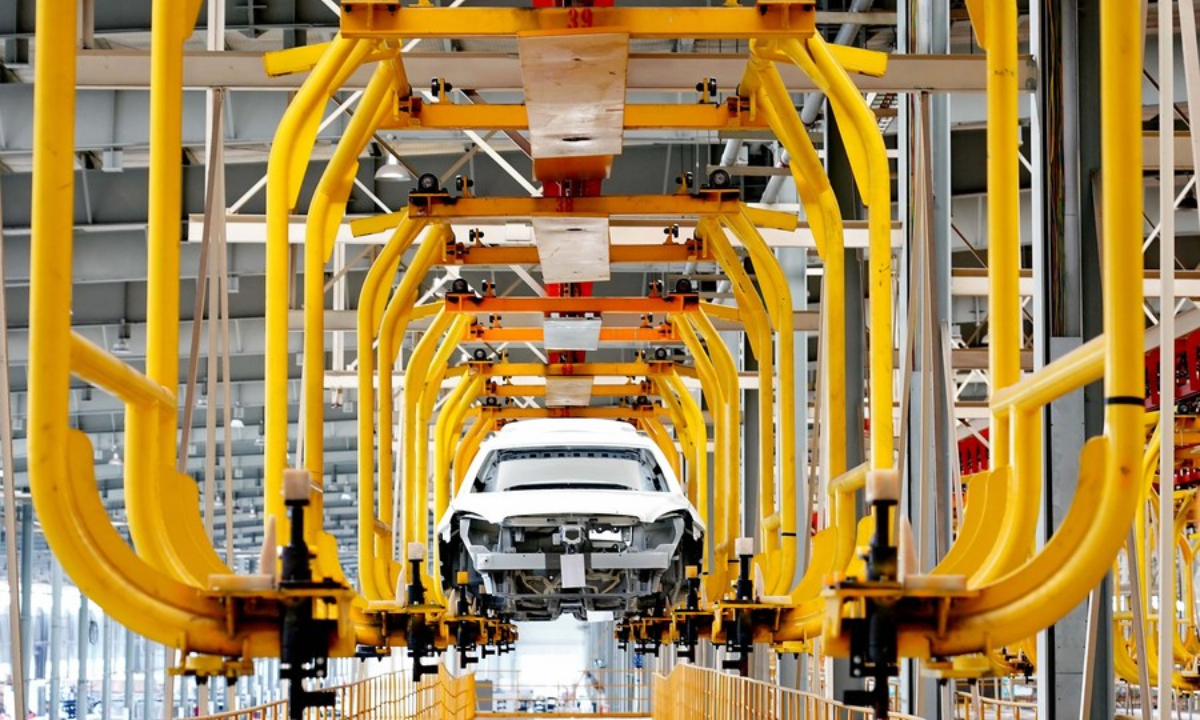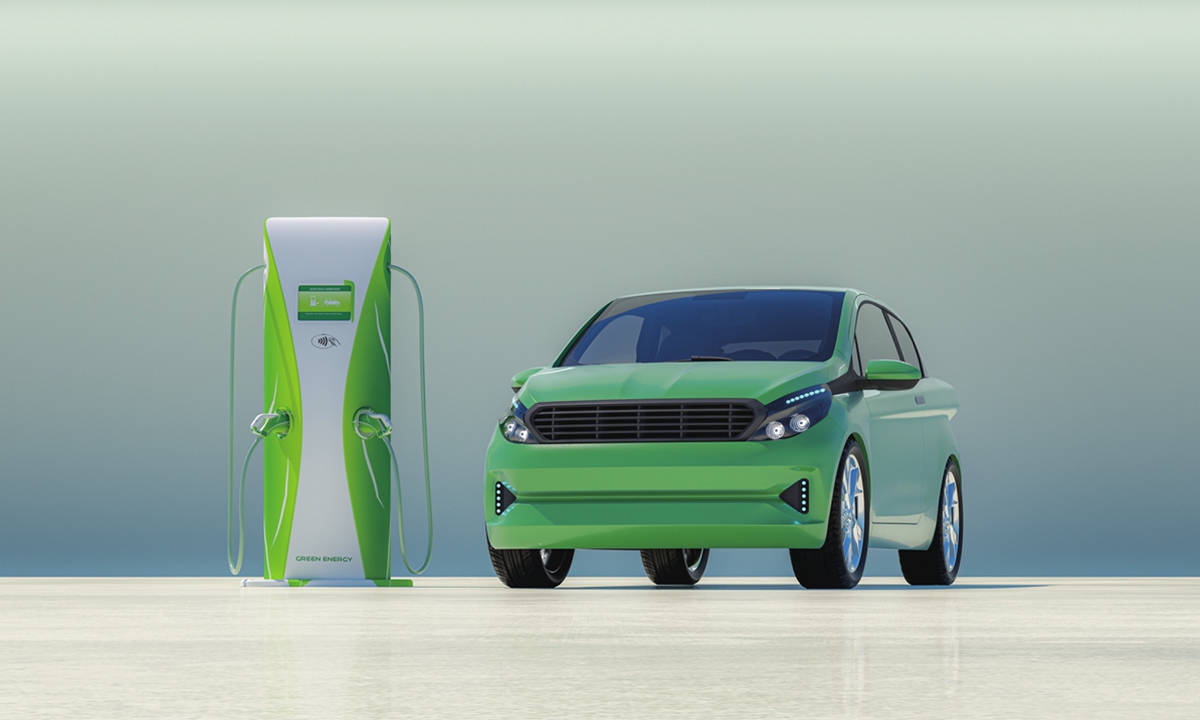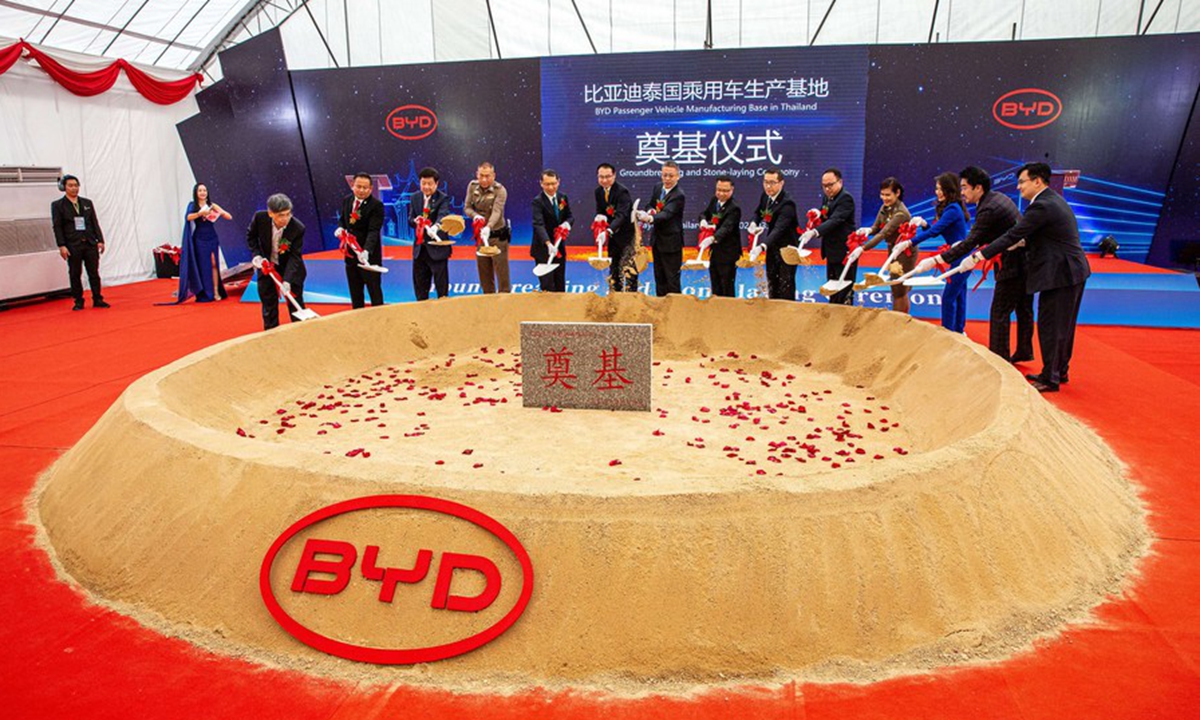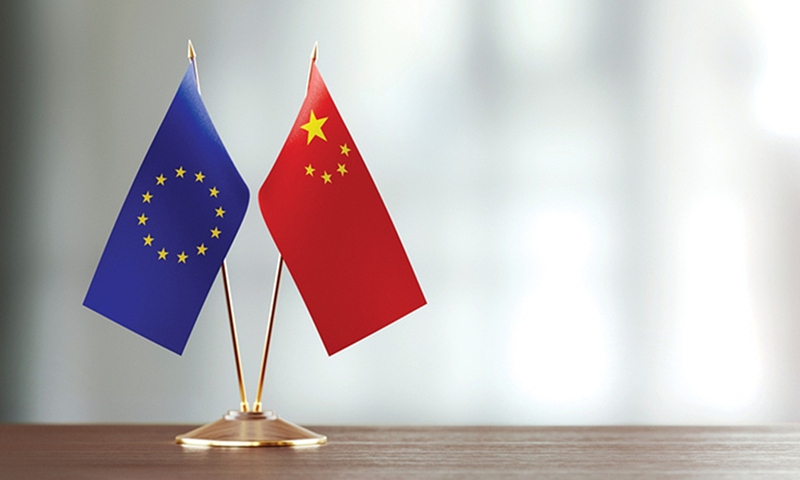
Photo taken on July 6, 2019 shows a production line at a subsidiary of Beijing Electric Vehicle Co., Ltd. (BJEV), a new energy vehicle producer, in Huanghua city of Cangzhou, north China's Hebei Province. Photo:Xinhua
The EU announced on Wednesday a formal anti-subsidy investigation into China-made electric vehicles (EVs). Analysts said that the probe could escalate into a discriminative "trade war against China's EV industry."
The rise of China's EVs has sparked unease within the EU, as China's competitiveness in the new automobile industry has constantly strengthened, an industry insider told the Global Times on Friday, on condition of anonymity.
"It is worth noting that the investigation was initiated in the absence of a written complaint from the industry in Europe. In other words, it could be seen as a potential trade war initiated by the EU," the insider said.
In recent years, China's EV industry has seen rapid development thanks to its unremitting technological innovation and building up of a complete industrial and supply chain. Chinese EVs have found favor among consumers, including those in Europe.
According to auto consultancy Inovev, 8 percent of new EVs sold in Europe as of September 2023 were imported from China, up from 6 percent in 2022 and 4 percent in 2021.
In 2022, Chinese automakers exported 545,244 new-energy vehicles (NEVs) to Europe, accounting for 48.66 percent of all NEV exports, data from the China Passenger Car Association showed.
According to CleanTechnica, 15 of the world's top 20 best-selling EVs in July were China-made.
The EU's anti-subsidy probe into Chinese NEVs is based on subjective assumptions, lacks sufficient evidence and goes against WTO rules, China's Ministry of Commerce (MOFCOM) said on Wednesday, responding to the EU decision to conduct the probe.
"We express strong dissatisfaction and firm opposition to the EU decision," the MOFCOM said in a statement posted on its website on Wednesday.
The EU requires negotiations with the Chinese side under extremely short notice and fails to provide effective materials for negotiation, which has seriously infringed on China's rights, according to the MOFCOM.
China urged the EU to exert caution in applying trade remedy measures, considering the big picture of maintaining the stability of global industrial and supply chains and the China-EU comprehensive strategic partnership, the ministry said.
"The EU should encourage deepened cooperation in the new-energy industry, which has NEVs as one of its spearheads, and create a fair, non-discriminatory and predictable market environment for the common development of the China-EU EV industry," the MOFCOM said.
The EU's probe was opposed by the German government and the business community there. German Minister for Digital and Transport Volker Wissing in September rejected possible punitive tariffs as a result of the European Commission's (EC) investigation into Chinese EV industry, according to German newspaper Augsburger Allgemeine.
On September 20, the German Handelsblatt published an article saying that EC President Ursula Von der Leyen's China policy is losing support and her tough stance is intended to win the approval of the US. Such a move would have a negative impact on German auto companies.



